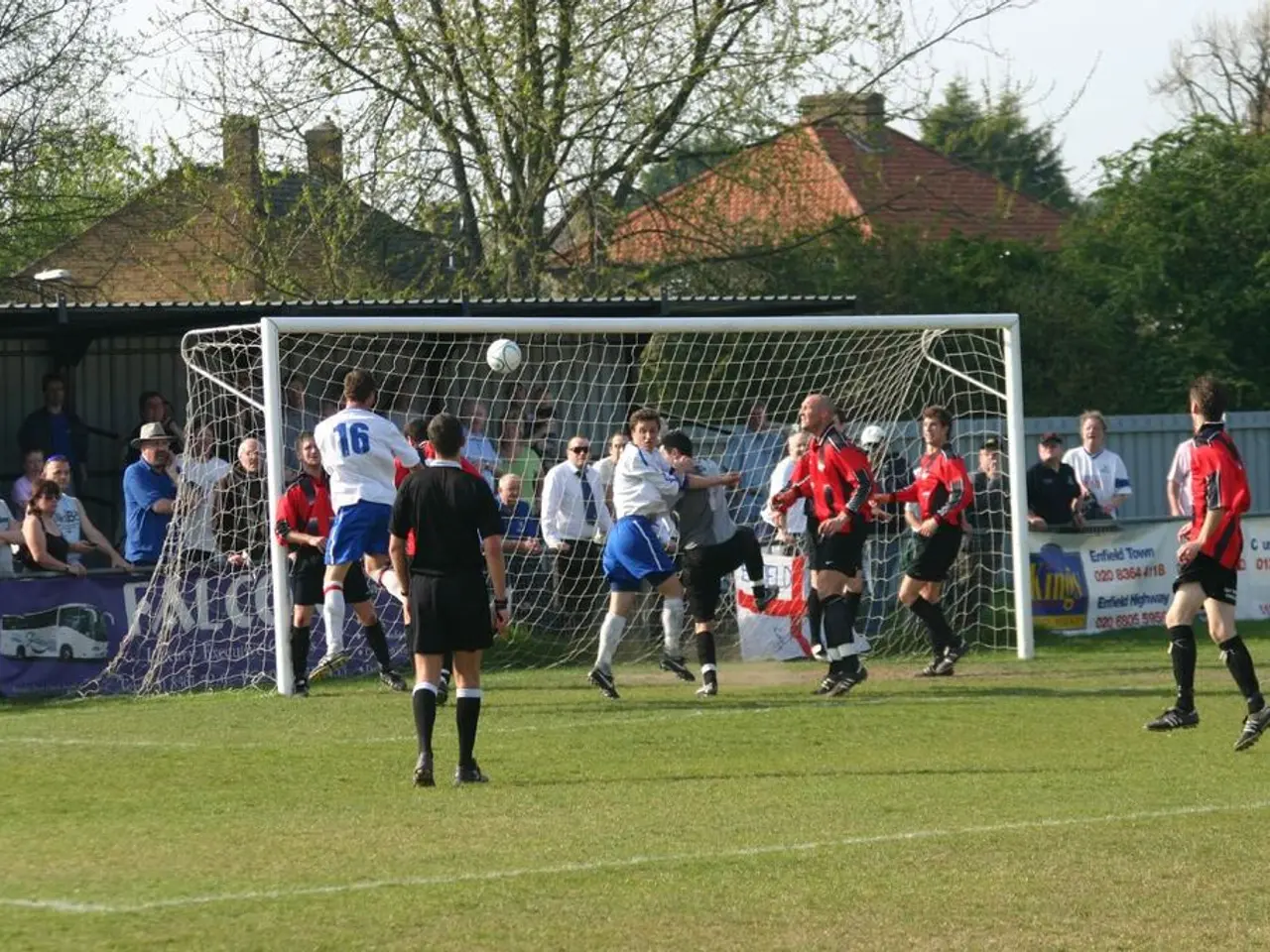Bundesliga to Increase Pace and Clarity, According to Official
Semi-Automated Offside Technology Revolutionises Football
Football leagues across Europe are embracing a new era of technology, with the introduction of semi-automated offside technology (SAOT) in the Premier League, Bundesliga, and UEFA Champions League. The goal is to increase speed, accuracy, and transparency in offside decisions.
Premier League Leads the Way
The Premier League began using SAOT from April 2025, following its initial introduction in the FA Cup and extensive non-live testing in the league. This system uses optical player tracking and virtual graphics to place offside lines more efficiently, enhancing the fan experience. It has helped reduce the time taken per offside VAR decision by about 27 seconds and increased transparency by displaying VAR visuals and referee announcements in stadiums [1][2].
Bundesliga Joins the Movement
In the Bundesliga, SAOT started from the 2025/26 season. It employs high-resolution stadium cameras and artificial intelligence to track players and the ball in real-time, automatically detecting potential offside situations. The VAR reviews the AI-generated virtual offside lines and relays decisions to the on-field referee. Broadcast graphics are used to show fans how decisions were made, improving transparency [3].
UEFA Champions League Embraces Technology
The UEFA Champions League has fully adopted SAOT for the 2025/26 season, making it one of the most advanced implementations. The system uses multiple limb-tracking cameras and AI to determine offside within seconds, showing visual animations on broadcasts for clearer understanding. UEFA maintains that the final decision rests with the human referee, preserving the subjective element in officiating while minimizing debate over marginal offsides [5].
Accuracy and Reception
SAOT significantly increases the precision of offside calls by using AI and multiple camera angles to track exact player positions and the ball. This reduces human error and subjective judgment, especially on close calls [4]. The technology has been well received by referees and officials because it speeds up offside decision processes and reduces VAR-related delays [2][3].
Coaches and referees appreciate the enhanced clarity and consistency SAOT brings to offside decisions, although the human element remains critical in the final ruling to retain the spirit of the game [5].
A New Era for Football
With the implementation of SAOT, football is moving towards a more accurate, efficient, and transparent officiating system. The technology is positively received by all stakeholders, providing greater transparency to fans through broadcast visuals and stadium communications [1][2][3][4][5].
More referees are now in action, with a total of 61,027 referees officiating in the last season in Germany, an increase of around 3,000 compared to the previous season. A uniform regulation for extra time is to be introduced to recover lost time, not wasted time, with 30 seconds allocated for each goal and substitution slot, and additional time for injury treatments and VAR checks.
Each footballer is assigned 21 body points from head to toe, and the kick-off moment of the ball is also automatically recorded. In a match, a decision made by the system showing a player as offside with a reliability of one centimeter is considered offside. The extra time in the first two matchdays of the second league increased from 4:26 minutes per half to an average of 5:17 minutes.
The stadiums will make announcements when the referee has viewed a scene on the monitor or changed a decision after a VAR intervention. Knut Kircher, a mechanical engineer and the managing director of sport and communication at Schiri GmbH of the German Football Association (DFB), believes professional football can improve with the introduction of semi-automated offside technology. The refereeing system has regained a better reputation, which particularly helps the amateurs.
Read also:
- Show a modicum of decency, truly
- Latest updates for July 31: Introduction of Ather 450S with expanded battery, unveiling of new Tesla dealership, and additional news
- VinFast's debut EV plant in India, Tata Harrier EV distribution starts, next-gen Mahindra Bolero sightings caught on camera
- Tesla-powered residences in Houston create a buyers' frenzy




